Is a borderless society possible with blockchain?
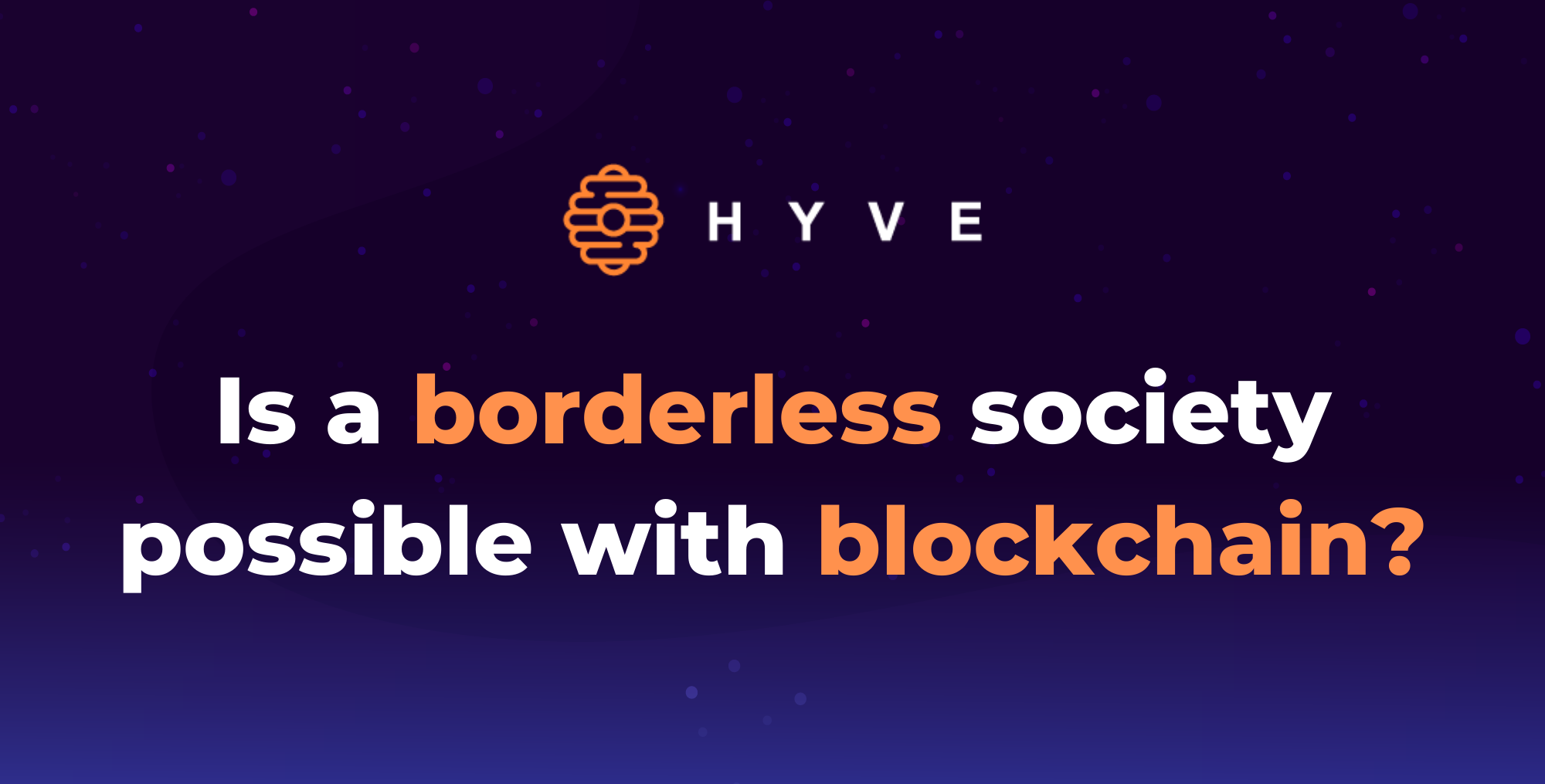
The efficient distribution of values, assets, money, or any resource, in general, has been on everybody's lips for some time now.
As consumerism affects not only our professional lives but even inter-human relationships, we tend to search for more meaningful ways to live, more justice inflicted in our everyday lives, and overall a more even global distribution of resources.
We all want a borderless society, regardless of this very stiff one we now live in.
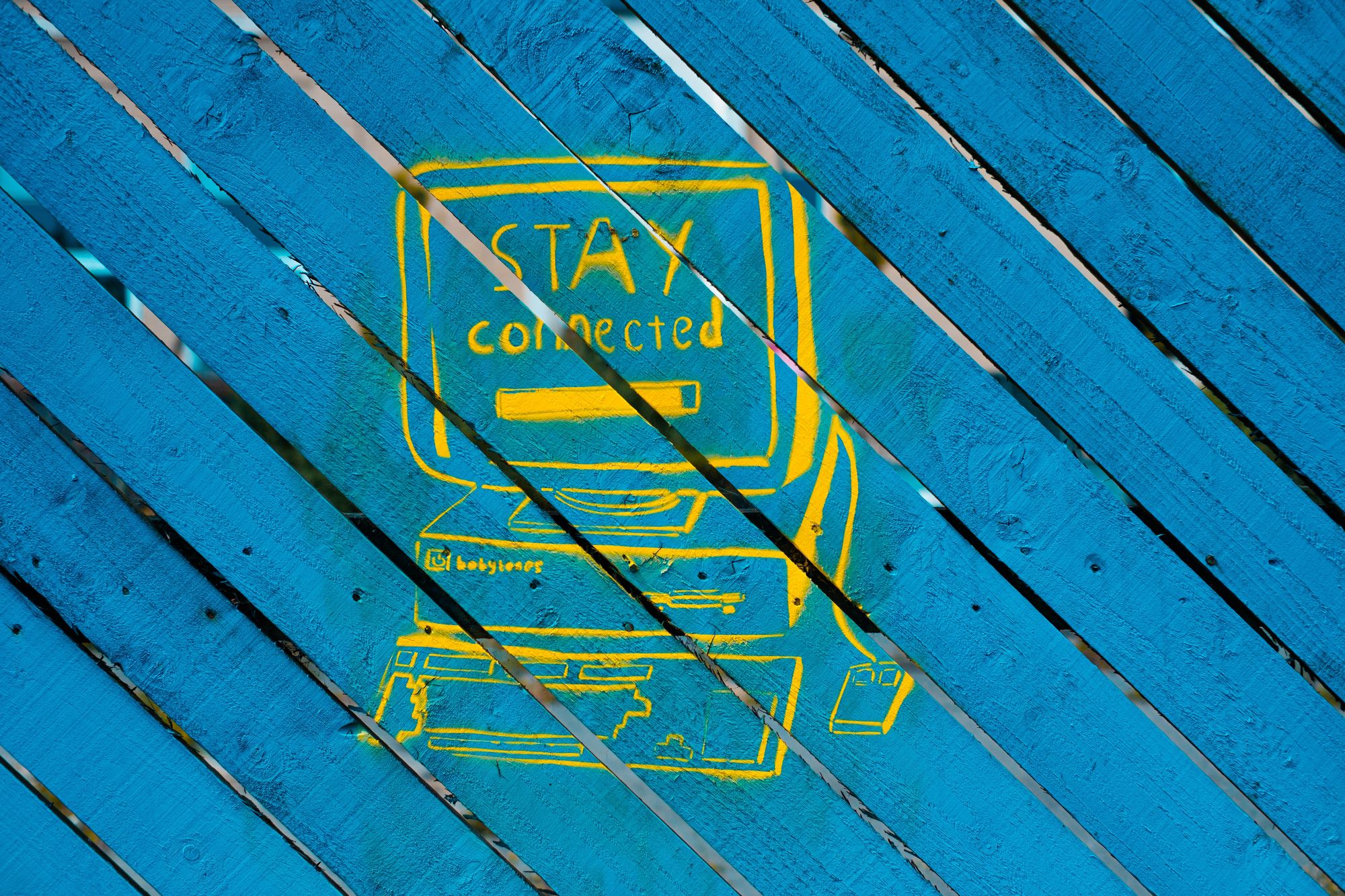
In the pandemic context, the rise and shine of technology give us a gleam of hope, a way out of almost three years of global physical and psychological "imprisonment" due to a virus that forced us to rethink everything. One of the rising stars among technologies comes into play, the blockchain.
Blockchain technology was first elaborated as a part of the Bitcoin network, a decentralized payment system and virtual currency that can be traded on a peer-to-peer network, without relying on banks or other financial institutions.
Studies have shown that the European blockchain market is set to experience sustained growth over the decade, opening the door to more comprehensive use cases across the continent. Therefore, a step forward in the development of the global village.
Blockchain Technology Market size surpassed USD 488 million in 2018 and is predicted to grow at more than 69% CAGR between 2019 and 2025.
The degree of transparency and privacy that blockchain provides for businesses is one of its most enticing features. Blockchain shifts trust from central authorities to a decentralized consensus among all the network participants, thereby increasing trust and security.
Blockchain will democratize assets and money, as much as the Internet did with information, paving the way for a borderless future.
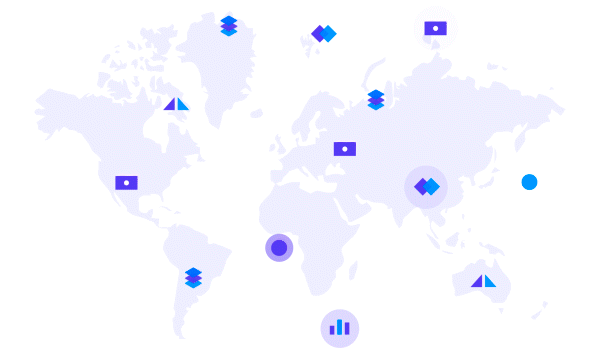
The current predicament
Sending money from one person to another, from one bank to another, and from one country to another has proven problematic in an increasingly globalized world. Large fees may be imposed, and the procedure may take several days to complete. For example, companies such as Western Union or PayPal base their business model on the fees collected for transferring money, so it is never going to be as cheap as one would like.
The transparency of cryptocurrency is incredibly powerful and drives innovation. Cryptocurrencies have the potential to enable social and economic growth throughout the world, by providing easier access to capital and financial services. It can help small and medium businesses everywhere get better financial coverage and a liberated financial connection with the rest of the world.
Decentralization enables us to provide solutions that were formerly reserved for a few privileged market participants. A borderless society can truly democratize how people around the world transact. This will help the global economy and could be a significant step toward reducing poverty.
The advantages of borderless cryptocurrency payments
The global financial solutions provided by blockchain technology will remove costs that have been applied across the global monetary system since the end of WWII. By eliminating the figure of the middleman, blockchain technology makes it possible to replace the model of top-down hierarchical organizations with a system of distributed and bottom-up cooperation, by relying on a decentralized infrastructure. As a result, it's no surprise that the volume of transactions in the crypto space has been steadily increasing.
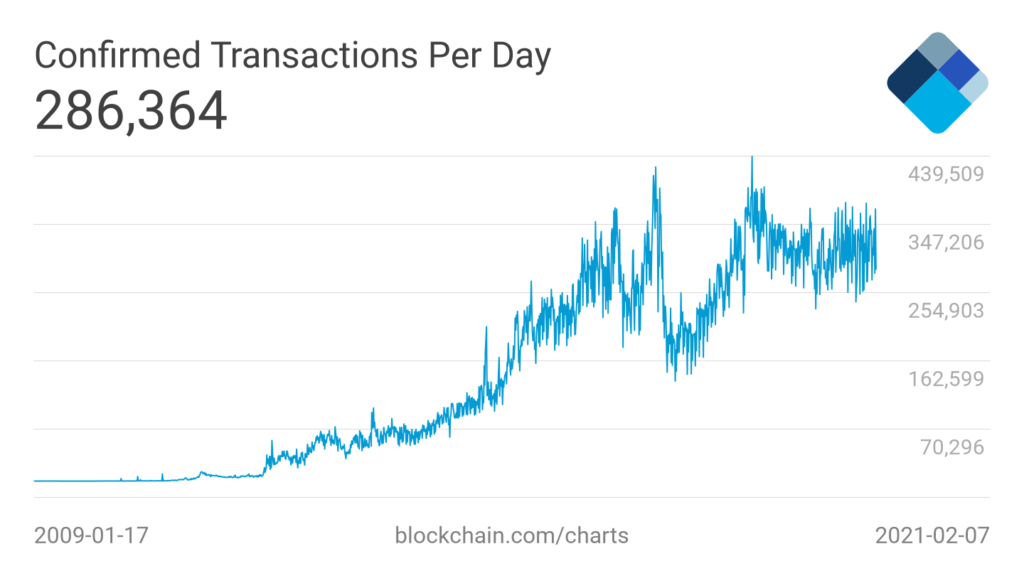
The number of confirmed Bitcoin transactions per day has grown 6x from just over 50,000 in 2014 to over 300,000 as of February 2021.
What`s the difference between a real blockchain or anything that has taken its name?
• If in any context you can replace the word "blockchain" with the term "database," then it is surely not a blockchain.
• A technology is not innovative if it is not decentralized, borderless, neutral, censorship-resistant, it is more of the same disguised as something new.
• If it restores trust in intermediaries, that is if it is centrally managed, it is just a common and current database that has appropriated the term "blockchain" as a marketing strategy.
Blockchain innovation is enhancing humanitarian response
So, what’s so special about blockchain that can be transformative for humanitarian work?
The United Nations World Food Programme (WFP) is the world’s largest humanitarian organization, and the one providing the largest blockchain-based cash transfer assistance. It combines biometric authentication software with blockchain to allow 100,000 Syrian refugees to access food within Jordan camps.
WFP benefits from blockchain because it provides an immutable record of all transactions completed via the store. This results in significantly more efficient reconciliation — as well as a significant reduction in third-party accounting and due diligence costs.
Rather than just sending and receiving a cryptocurrency, newer iterations of blockchain technology can support applications layered on top of it.
HYVE is enabling the creation of a global village by offering people a global multi-chain task directory. Since it has a cross-chain architecture, HYVE enables a whole new generation of marketplaces and platforms to be built on top of the blockchain to a large extent.
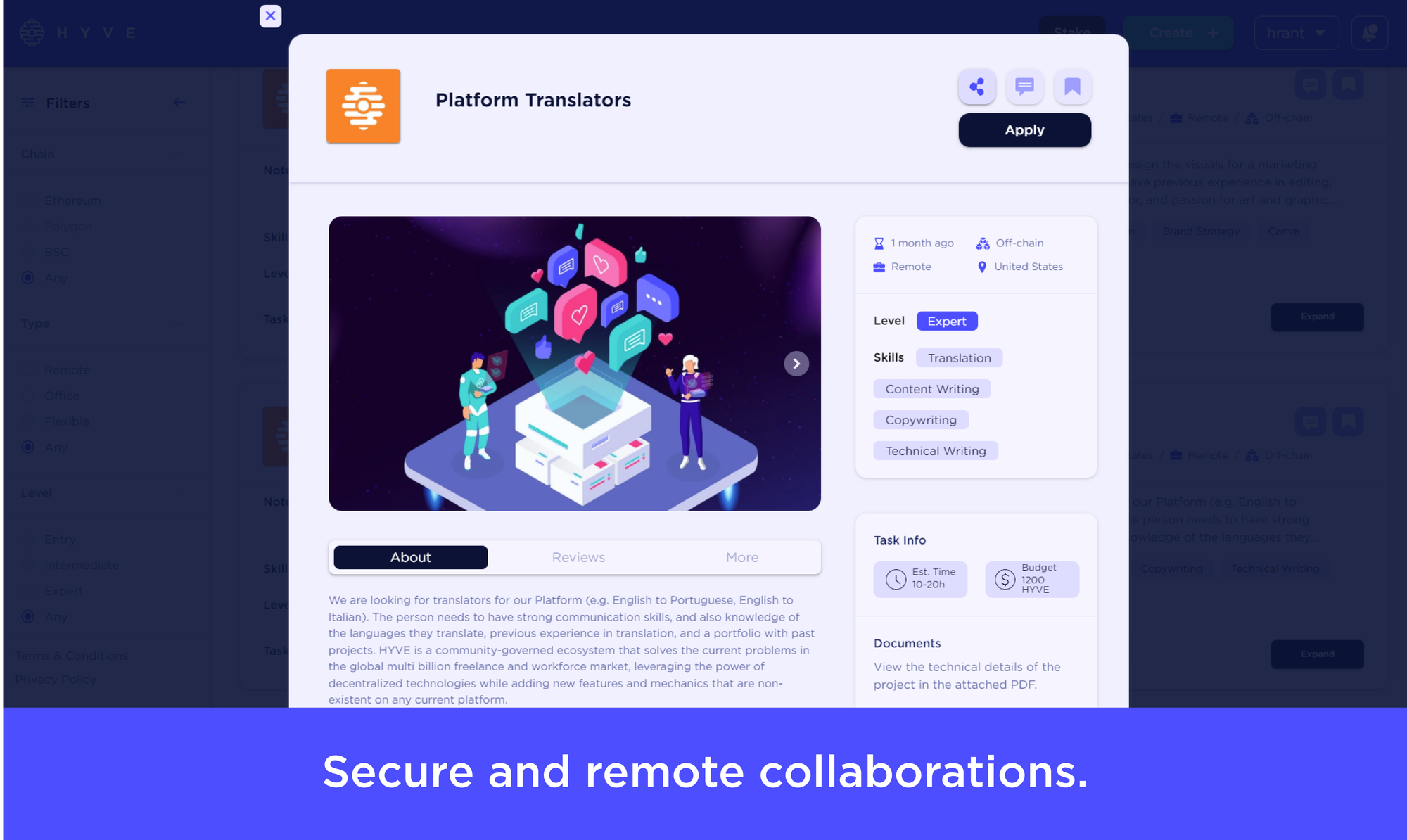
HYVE Jobs and Tasks are now live on two different blockchains, Ethereum and Binance Smart Chain. On the other hand, HYVE also offers staking incentives, thus expanding the ecosystem into various facets of life and collaboration in general.
With HYVE, the team aspires to onboard people in a digital borderless society, with other metaverse companies building the same mindset.
🐝 Want to learn more about HYVE?
🐦 Follow us on Twitter.
🗨️ Join our Telegram Group.
📢 Join our Announcement Channel.
💡 Join our Discord.
✅ Follow us on Instagram.
👍 Like us on Facebook.
💡 Visit our Website.
